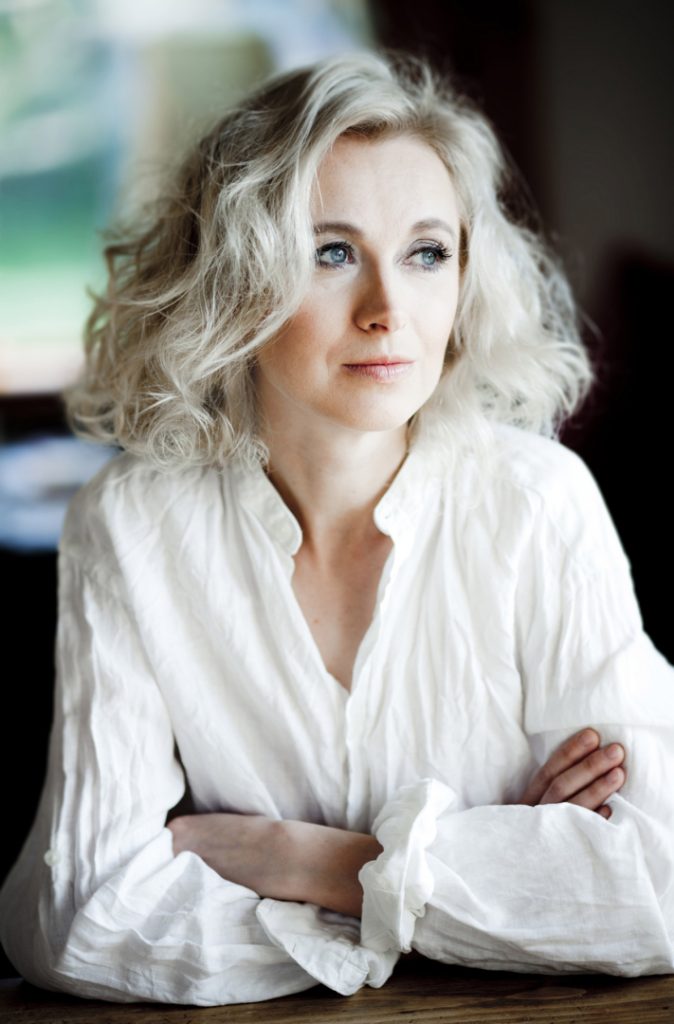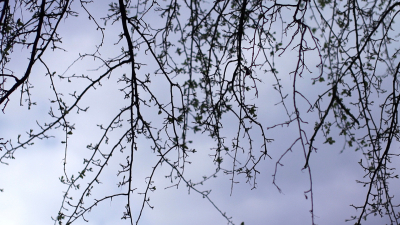
Manuela Gretkowska was born on 6th October 1964 in Łódź. After winning the philosophical contest in high school she was accepted to study Philosophy at the Jagiellonian University. During her studies she wrote to the “brulion”, a cultural quarterly. At the end of the 1980s, she decided to leave Poland with her husband, Cezary Michalski.
In 1988, she emigrated to France where she received the political asylee status which enabled her to stay in France permanently but, at the same time, deprived her of the possibility of getting back to Poland. In Paris she studied anthropology at the École des hautes études en sciences sociales. Two years later she made her literary debut with „My zdies’ emigranty” (We Are Immigrants Here), a description of her emigration experiences and pursuit of happiness outside her country wrote from the perspective of a Polish emigrant.
After returning to Poland at the beginning of the 1990s, she joined a group creating the Polish version of “Elle” magazine as the deputy editor-in-chief. In 1997, she left for Sweden with her partner, Piotr Pietucha. Her daughter, Pola, was born in Sweden. Manuela and Piotr came back to Poland after three years. After her second return, Manuela became involved in the political scene establishing a “Poland is a Woman” social movement that afterwards was transformed into the Women’s Party that now operates as “The Feminist Initiative”. She described her political experiences in a book titled “Citizen”.
Interviewed by Iwona Demska on 10th February 2016 at the writer’s home in Ustanów.

Yes, when I was leaving, it was one of the worst... no, the decision. When I made the decision, I was over the moon and what was waiting there for us was also a paradise. But physically, the moment, those two, three worst moments in my life, it was the departure, when you have your backpack because there is nothing more you need. Only a small backpack. And you... I can’t. It all comes back to me. It wasn’t a kind of attachment to Poland because Poland was no country of mine, only some communist dump. It was breaking my ties with my family and those were really strong. Maybe not like death because after that my father died and it really got to me. It was really similar and I’ll never... It’s horrible because you are healthy, your parents are healthy and we won’t see each other again. It was something like that. We’ll never come back. We were leaving... The system had not changed since the war and it was certain that it definitely won’t change. And we won’t be going back and they won’t be visiting us. When we take refuge that’s it. And that was so terrible but miracles do happen. Two years later they came to us when the communist system fell. We were the last asylees from Poland.

You never emigrate to seek adventures. If you want to make money, then you leave to make money. You only emigrate when there is no other way. For me, this is what defines emigration. It’s not a trip, not a “let’s see how it goes” departure type but the “I have no choice” alternative. There is nothing behind me now. Shoot or emigrate. My first departure was a kind of science-fiction. In a world when food was bought for coupons I saw shops with over a several dozen types of cheese, five hundred cold meat cuts, people who have access to the whole world, other culture. Totally. Body language, and I’m not talking about the spoken language here, great wealth of any kind. It was a trip into the future, into a totally new world. Yes, it was a culture shock for me but when you’re young, it’s not such an issue. It’s an adventure.

Especially nowadays, this generation born in the free Poland or psychos like me can live anywhere. Please, believe me, one year ago I came back from America. If I had had a job there, I would have stayed. There is this sentiment, you were born somewhere, but I feel sentimental about Sweden, France, I’m attached to various places. For me it’s not important where I’m living. I’m not attached to Poland, it's not a special place for me. I really sympathize with myself, with Poles. It’s compassion. If compassion means feeling, OK, but I don’t think that it’s... The sun is my homeland. The place with the sun, where it’s warm and nice. My homeland it the language I speak. I can’t master any other language as fluently as Polish. This is my attachment. I think in Polish. I can think in French. I tried it one year ago, when I had to be in France, surrounded only by the French. I started thinking in French because it’s easier that way. I have no idea why. It just gets easier that way. I don’t get that impression. I hope that I’ll die in a different country, I’ll leave, I’d really like that. I like every place. I like it here, I have my friends, I feel at home here but it doesn’t mean that I’m... Poland is no cross that we should carry. Every place is good if you feel good there. Brain research shows that if you take psychedelic drugs, and I’m not talking about heroine here, I’m talking about psychedelic drugs that stimulate your mind, if you encounter a very unusual situation because you leave, then the brain produces new neurons and it rejuvenates itself. Maybe I’m fighting against my brain and not patriotism. I want to live and for me leaving, a change means life.



